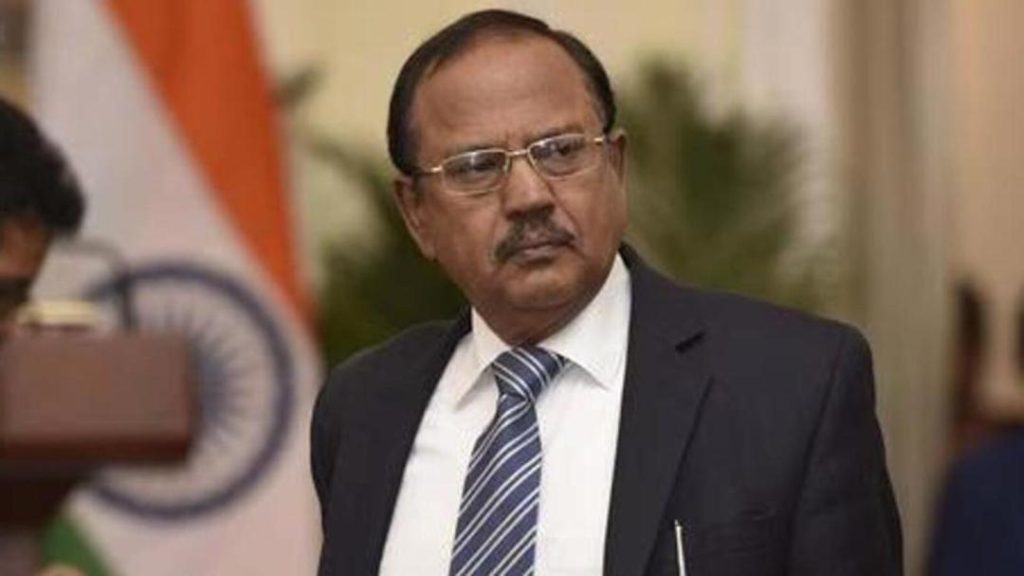
NSAs of India and Pakistan in Touch Amid Tensions, Claims Pakistan
The already tense situation between India and Pakistan has taken a new turn with Pakistan claiming that their National Security Advisor, Lt General Asim Malik, is in touch with his Indian counterpart, Ajit Doval. This development comes amid escalating tensions between the two countries following India’s recent airstrikes on terrorist hideouts in Pakistan and its administrative region of Pakistan-Occupied Kashmir (PoK).
Pakistan Foreign Minister Ishaq Dar made the claim while speaking to the media in Islamabad. “Our National Security Advisor, Lt General Asim Malik, is in touch with Ajit Doval, the National Security Advisor of India,” Dar said. However, an official response from the Indian government is yet to be received.
The news of the two NSAs being in touch has sparked a mix of reactions among political analysts and experts. While some have welcomed the move as a positive step towards de-escalating tensions, others have expressed skepticism about the effectiveness of such talks in the face of escalating hostilities.
The recent airstrikes by the Indian Air Force (IAF) on terrorist hideouts in Pakistan and PoK have led to a significant deterioration in relations between the two countries. The airstrikes were conducted in response to the deadly Pulwama attack, which killed over 40 Indian security personnel. The attack was claimed by the Jaish-e-Mohammed (JeM), a Pakistan-based terrorist group.
Pakistan has consistently denied any role in the Pulwama attack, but India has accused Islamabad of supporting and harboring terrorist groups, including the JeM. The Indian government has also demanded that Pakistan take immediate action against terrorist groups operating from its soil.
The recent airstrikes by the IAF have further strained ties between the two countries. Pakistan has vowed to take revenge for the airstrikes and has already shot down an Indian MiG-21 fighter jet. The Indian pilot, Wing Commander Abhinandan Varthaman, was captured by Pakistan and was later released after spending three days in captivity.
Despite the escalation in tensions, Pakistan’s claim about the NSAs being in touch has raised hopes of a possible breakthrough in the stalemate. The NSAs of the two countries have been in touch in the past, particularly during times of crisis. In 2016, the NSAs of India and Pakistan had held secret talks in Bangkok, Thailand, to discuss ways to reduce tensions and prevent future incidents.
However, experts believe that the current situation is far more complex and challenging than the past. “The situation is much more volatile now than it was in 2016,” said Ajai Shukla, a defense analyst. “The NSAs of India and Pakistan need to work together to find a solution, but it will require a lot of effort and trust-building.”
Pakistan’s claim about the NSAs being in touch has also raised questions about the role of third parties in the crisis. The United States, China, and other countries have been trying to mediate between India and Pakistan to reduce tensions. However, their efforts have so far been unsuccessful.
In recent days, the United States has been urging India and Pakistan to exercise restraint and to avoid any actions that could escalate the situation further. The US has also called for the NSAs of the two countries to talk and work together to find a peaceful solution.
China, which is a close ally of Pakistan, has also been trying to mediate between the two countries. However, its efforts have been met with skepticism by India, which accuses China of not doing enough to pressure Pakistan to crack down on terrorist groups.
The situation between India and Pakistan is likely to remain tense in the coming days, but the claim about the NSAs being in touch has raised hopes of a possible breakthrough. The NSAs of the two countries have a crucial role to play in finding a solution, and it remains to be seen whether they can work together to reduce tensions and prevent further escalation.



